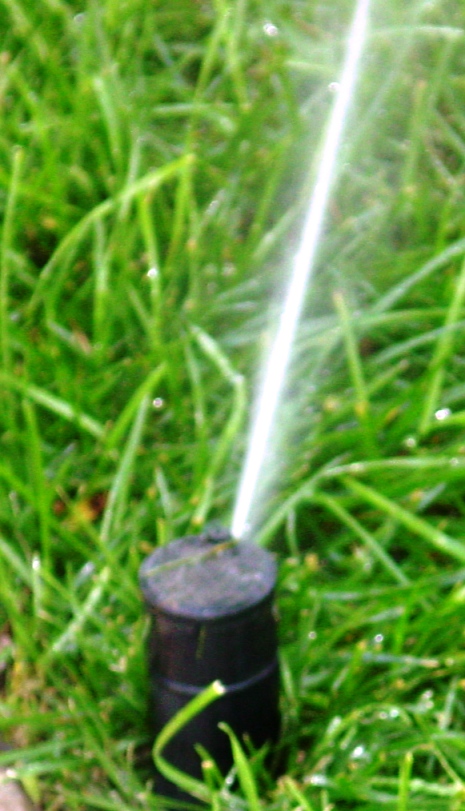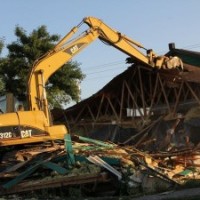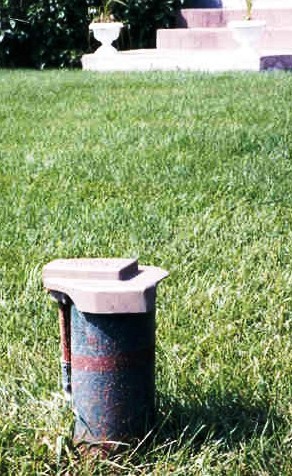Minnesotans admit that they don’t know everything about water pollution. They may not know how pollutants are finding their way into rivers, lakes, streams, and groundwater, But, in a recent survey, reported in the StarTribune, Minnesotans know what their three top water quality concerns are: Clean water for consumption of fish Clean water for drinking […]
Archive for the ‘City of Andover’ Category

Andover is protecting its drinking water
 July 21st, 2014
July 21st, 2014  knowtheflow
knowtheflow The Andover City Council believes that its residents deserve the best that the City has to offer. The future of Andover’s water supply is the groundwater below its homes and businesses. The City is committed to providing sustainable and safe drinking water to residents now and in the future. On July 15, 2014, Andover Public […]

Municipal drinking water quality reports are available
 July 1st, 2014
July 1st, 2014  knowtheflow
knowtheflow Drinking water is safe at Anoka County’s community water supply systems, according to the Minnesota Department of Health’s (MDH) Drinking Water Annual Report 2013. Each year, cities publish reports on the results of water quality tests of their water system. The 2013 water quality reports summarize testing results for 2013 (Jan 1 to December 31). The reports […]

City watering restrictions are going into effect
 June 1st, 2014
June 1st, 2014  knowtheflow
knowtheflow As Anoka County communities grow – so does our demand for water. The trick is to use water wisely so that our combined water demand doesn’t exceed our local water resources supply. During the summer months water use increases for lawn sprinkling. A homeowners water use in July can be six (6) times greater than January. […]

Unused water wells must be sealed for everyone’s health
 May 24th, 2014
May 24th, 2014  knowtheflow
knowtheflow It’s the law: unused wells must be sealed. During this construction and demolition season, the Anoka County Municipal Wellhead Protection Group asks residents, property owners and developers to be on the lookout for old unsealed wells as you dig, demolish and develop. It is estimated that there are over 20,000 unused wells in Anoka County. […]

Well Water Wise week (May 5-9, 2014)
 May 3rd, 2014
May 3rd, 2014  knowtheflow
knowtheflow Private (home and cabin) well owners must perform an annual test to ensure that their water supply remains safe to drink. The Anoka County Community Health and Environmental Services Department, in cooperation with 13 communities, is sponsoring the 15th annual Well Water Wise Week (3W). Anoka County’s 3W promotion coincides with National Drinking Water Week in […]

Plan ahead to celebrate Arbor Day
 March 16th, 2014
March 16th, 2014  knowtheflow
knowtheflow Each year, on the last Friday of April, and throughout the month of May, Minnesotans recognize the value of trees, forests and the natural resources they represent. Trees brighten the environment by moderating climate, improving air and water quality, conserving water and energy, and sheltering wildlife. Many community Arbor Day/Month events include tree sales that require […]

The Safe Drinking Water Act is turning 40 years old
 March 6th, 2014
March 6th, 2014  knowtheflow
knowtheflow On December 16, 1974, President Gerald Ford signed into law the Safe Drinking Water Act (SDWA) intended to ensure safe drinking water for the public. The SDWA applies to all public water supply systems including municipal water utilities and wells that serve mobile home parks, schools, churches and office buildings. A home or cabin well system […]

Water protection and management in your community
 March 5th, 2014
March 5th, 2014  knowtheflow
knowtheflow Anoka County communities have established water resource management programs with their watershed management organization or a watershed district. The City’s surface water management programs deal with broad land runoff (“nonpoint” source) and specific wastewater (“point” source) pollution. Point source pollution includes the discharge of treated wastewater effluent through a pipe. Nonpoint sources of pollution result from […]

Looking for water information?
 March 2nd, 2014
March 2nd, 2014  knowtheflow
knowtheflow The Anoka Conservation District and the seven (7) watershed management organizations are a terrific source of water information and protection activities in Anoka County. The Anoka Conservation District (ACD) is a non-regulatory county level subdivision of state government. ACD provides technical and financial assistance to private landowners to manage natural resources in a way that conserves […]




 Posted in
Posted in 